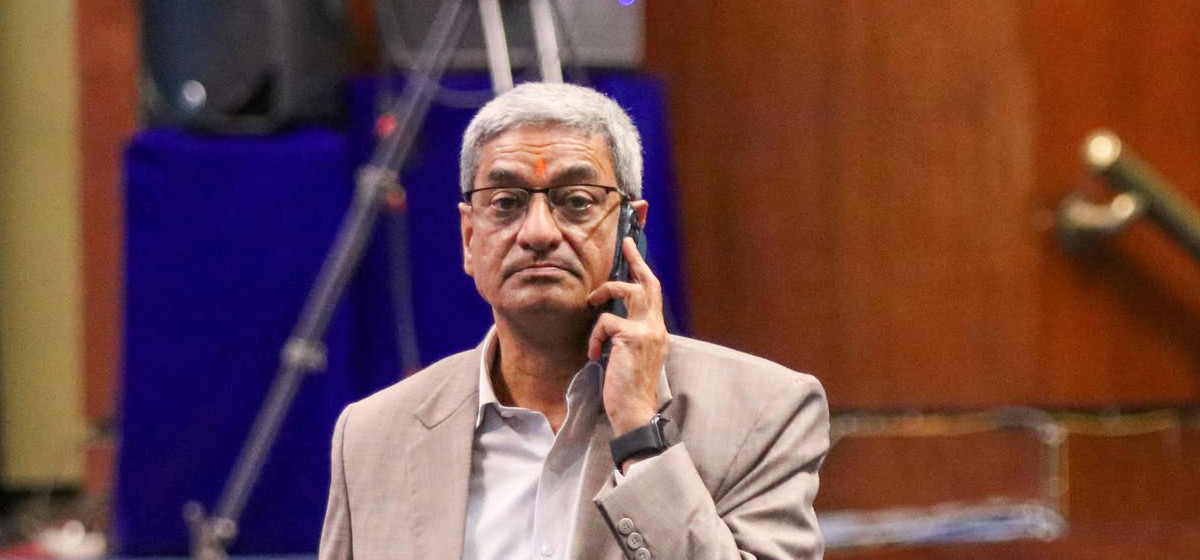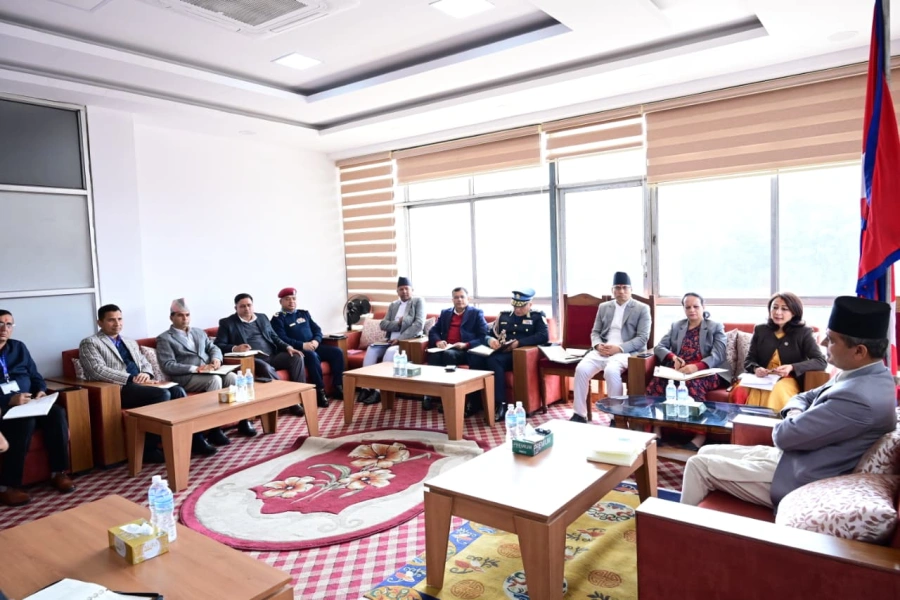KATHMANDU, Aug 10: Minister for Home Affairs Ramesh Lekhak has stated that there will be no exemption from punishment for those found guilty of rape during the insurgency period.
Speaking at an interaction on ‘Historical Achievements in the TJ Bill and the Participation of Conflict Victims in the Implementation of the Act,’ organized by the National Network of Victims and Survivors of Serious Human Rights Abuse (NNVS) in Kathmandu on Saturday, he stated that reducing the punishment for perpetrators of rape gives a negative message to society.
“Rape is always and under all circumstances rape; no situation should alter the punishment,” said Home Minister Lekhak, “Even now, the highest number of prisoners across the country are those convicted of rape. If the punishment is reduced, what message will it send to society?”
Home Minister Lekhak urges immigration staff to represent Nepal...

He said that the government has decided not to pardon rape offendors considering the concerns of all stakeholders. “What could be done better than this? How much more delay and obstruction can we tolerate?” he said, adding, “Now we need to focus on implementing the laws.”
Home Minister Lekhak said that there is a significant challenge in implementing the transitional justice laws and urged all victims to come together and stand united. "There is a major challenge in its implementation. If the nation cannot unite, this process could be delayed by another 10 years," he said.
In the program, CPN-UML leader and former Law Minister Agni Kharel emphasized that victims should remember the benefits the country has gained due to their sacrifices and should focus on healing the wounds of the conflict.
Kharel noted that the process of making the transitional justice laws victim-friendly has been prolonged. "If taking a stance on making the laws victim-friendly will stall the process, let it be said," Kharel said.
Janardan Sharma, a leader of the CPN (Maoist Centre) and a member of the task force formed to seek agreement on transitional justice issues, said the finalization of this law through national consensus as a historic achievement. He pointed out that the law emphasizes the identification and analysis of the causes of the conflict and its long-term resolution.
Devi Khadka, coordinator of the National Association of Conflict and Rape Victims, mentioned that the agreement on the transitional justice law is positive from the perspective of victims and women and welcome it. She called for political leadership’s commitment to ensure successful and effective implementation, avoiding politicization of the issue.
Dr Ram Kumar Bhandari, coordinator of NNVS, welcomed the agreement made between parties and urged the creation of a favorable environment for the implementation process, ensuring victims’ participation and ownership.






































